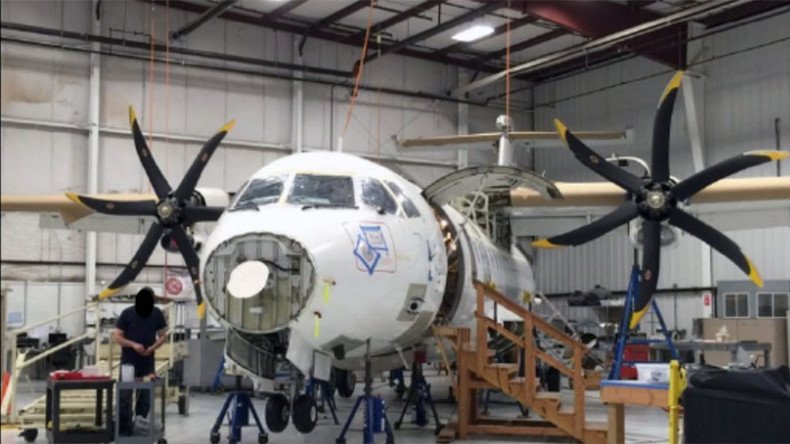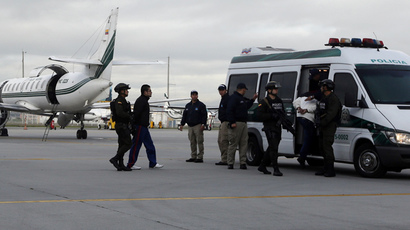It was supposed to fly over Afghanistan and look for drug-producing sites, but the airplane the DEA and the Pentagon spent nearly $90 million never left its hangar. Seven years since it was bought, the plane is still unable to fly and may never do so.
An audit by the Department of Justice’s Inspector-General (OIG) discovered the money pit in a Dover, Delaware hangar, “in an un-flyable state,” its modifications never completed. The inspectors described the program as an “ineffective and wasteful use of government resources.”
“Even though collectively the DEA and DOD have spent more than $86 million on the Global Discovery program, we found that, over seven years after the aircraft was purchased for the program, the aircraft remains inoperable, resting on jacks, and has never actually flown in Afghanistan,” said the DOJ audit, published Wednesday.
The boondoggle began in September 2008, when the DOJ’s Drug Enforcement Agency teamed up with the Department of Defense to purchase a 500-series ATR-42 turbo-prop transport for $8.6 million.
The Pentagon invested $29 million into modifying the plane to operate in combat zones such as Afghanistan, as part of a surveillance program called “Global Discovery,” intended to have been launched by December 2012. Instead, the program “has missed every intended delivery date that has been established,” the audit said.
Responding to the report, the DEA pointed the finger at the Pentagon, saying it had “previous positive experiences utilizing DoD contractors for modifying DEA aircraft,” and “no indication that the Global Discovery modification would encounter the significant delays and problems that ultimately occurred.”
The audit was conducted after an anonymous whistleblower sent a tip to the US Office of Special Counsel, accusing the DEA of misusing the Pentagon’s money by spending it on purposes unrelated to operations in Afghanistan.
While the inspectors could not directly confirm this to be the case, they did say the agency failed to follow federal rules and its own guidelines when it came to Global Discovery. The DEA flew only a small percentage of the required missions in Afghanistan, and ended up channeling a lot of the funds to unrelated travel and maintenance, for example.
Even if the Pentagon’s contractors somehow managed to fix up the plane, it will never fly over Afghanistan, as the DEA ended its operations in the country in July 2015.
Informing Congress at a hearing on March 16 of the fact that 2014 was the most profitable year for the Afghan drug trade, John Sopko, the Special Inspector General for Afghanistan Reconstruction, asked, “If this is winning [the drug war], what is losing?”
Since US-led forces occupied Afghanistan in 2001, Washington has spent approximately $8 billion on trying to suppress the production of heroin from the country’s poppy crops. Yet in recent years, heroin production has reached record highs, District Sentinel reported.


